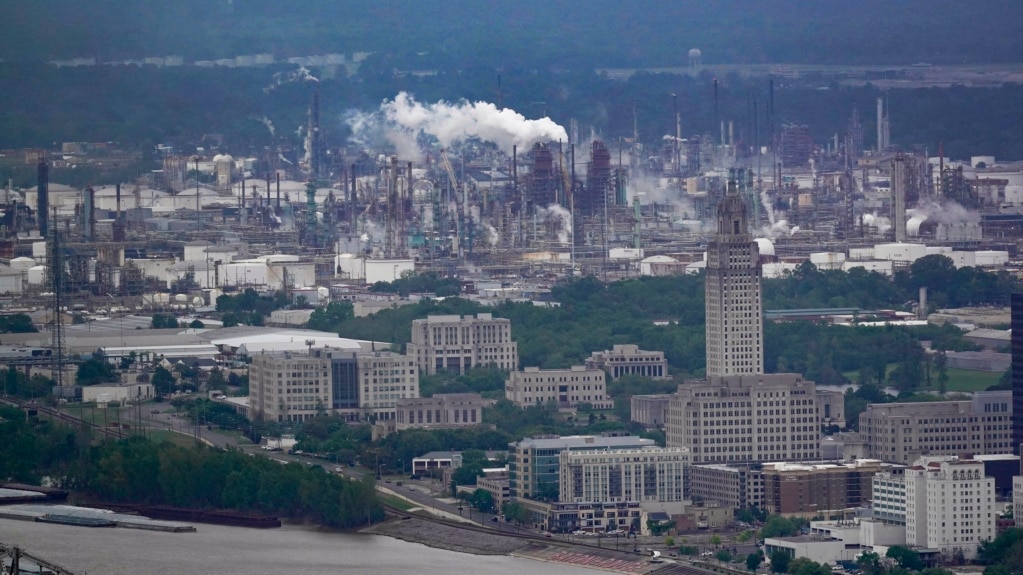A new study says scientists at the oil company Exxon Mobile made accurate predictions about global warming starting in the 1970s.
The study, in the journal Science, examined research by Exxon scientists. The oil company used more than 12 computer models that predicted increasing temperatures as well as, or better than, government and university scientists.
The study said that Exxon’s predictions that the atmosphere would warm about 0.2 degrees Celsius every 10 years were correct.
Naomi Oreskes is a history of science professor at Harvard University in Massachusetts. Oreskes was a co-writer of the study. She said Exxon paid for research that was “actually astonishing” in its precision and accuracy.
Geoffrey Supran is the lead writer of the study and an environmental science professor at the University of Miami. He said this study is different from what earlier studies have found in documents from the oil industry.
He said the data gives strong evidence that Exxon predicted that world temperatures would rise. But, he said, the company publicly attacked other scientific efforts that made similar predictions.
The study quoted then-Exxon chief Lee Raymond. In 1999, Raymond said climate research was “based on completely unproven climate models,” or mostly guessing about the future.
However, Exxon spokesperson Todd Spitler said some people are not correctly showing Exxon’s position on climate science. He said there was a debate within the company about climate science instead of a plan to give false information to the public.
Exxon has faced several legal cases claiming that the company knew about the damage oil and gas would cause but still gave misleading information to the public.
Massachusetts Attorney General Maura Healey compared Exxon’s public statements to those of the tobacco industry. For years, the tobacco industry denied the dangerous effects of tobacco use even when it knew about the dangers. Healy brought a legal case for the state of Massachusetts against Exxon in 2019 claiming that the company misled the public.
Oreskes and Supran, the writers of the study, said they had previously worked for or received money from organizations that support legal actions against Exxon.
Donald Wuebbles is a retired professor of atmospheric science at the University of Illinois. He told The Associated Press that in the 1980s he worked with scientists who received money to support their research from Exxon. He said he was not surprised by the company’s findings.
Wuebbles said: “It was clear that Exxon Mobile knew what was going on.” He added: “The problem is at the same time they were paying people to put out misinformation. That’s the big issue.”
InfluenceMap is a non-profit group jointly based in the U.S. and Britain, which studies how companies are affecting the world’s climate. InfluenceMap said Exxon’s overall communication efforts oppose the 2015 Paris Agreement on climate change. It also said Exxon is currently having a negative effect on efforts to fight climate change.
Faye Holder is the program manager for InfluenceMap. She said all her company’s research suggests that Exxon aims to continue its business and to “thwart” policies called for by supporters of climate change.
“The messages of denial and delay may look different, but the intention is the same,” she said.
I’m Andrew Smith.
Seth Borenstein wrote this story for the Associated Press. Andrew Smith adapted it for VOA Learning English.

